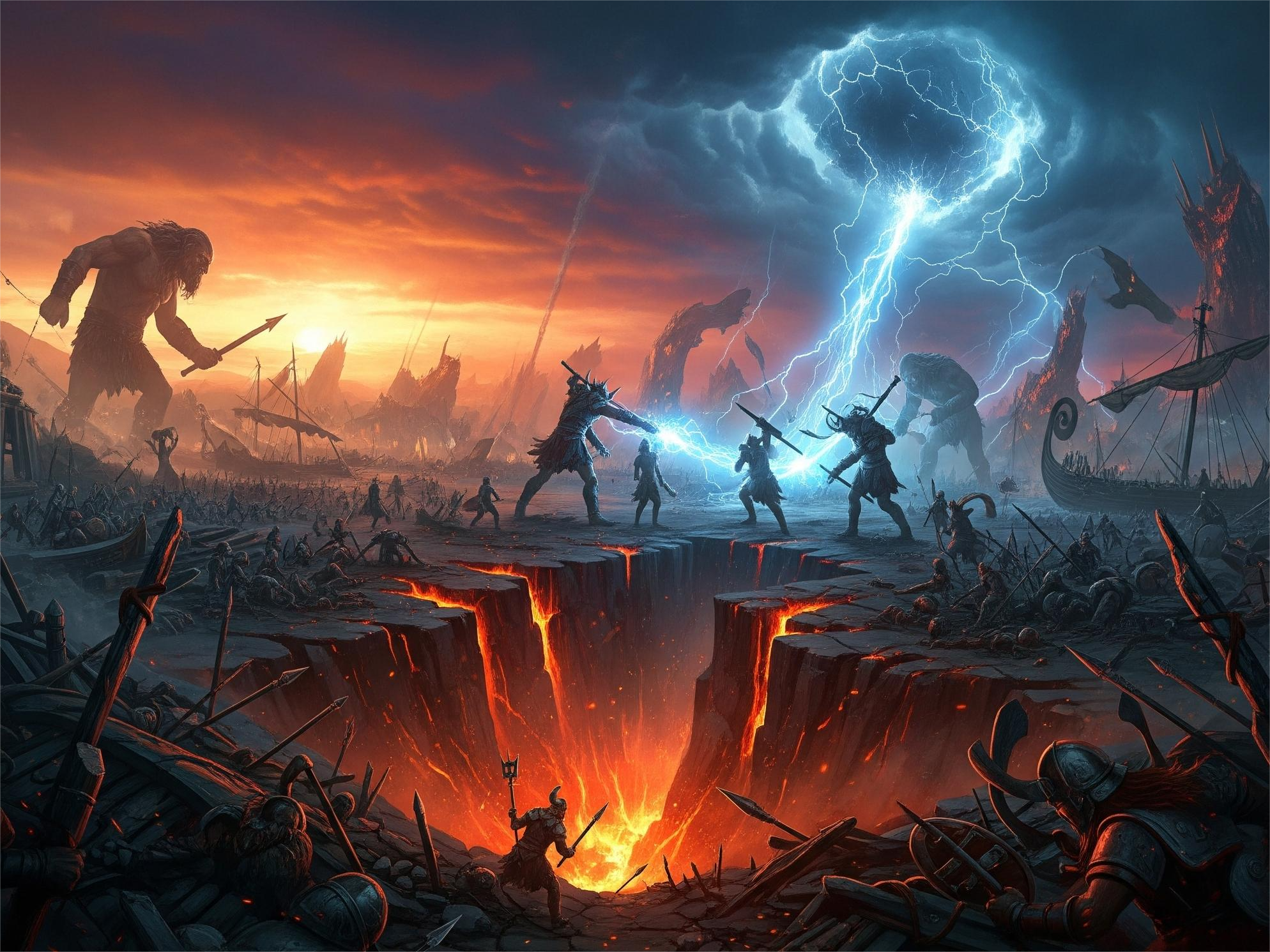In Norse mythology, Ragnarok signifies the ultimate apocalypse—a series of cataclysmic events that will lead to the destruction and rebirth of the world. Prophecies found in the Poetic Edda and the Prose Edda detail this apocalyptic sequence, including natural disasters, the death of gods, and a final battle between order and chaos.
According to legend, Ragnarok will be preceded by Fimbulwinter, a harsh and endless winter that devastates the world. Giants and monsters, including the great wolf Fenrir and the Midgard Serpent Jörmungandr, will break free. The gods—led by Odin, Thor, and Freyr—will engage in battle against these forces, resulting in mutual annihilation.
The symbolism of Ragnarok is potent. It reflects Norse views on the cyclical nature of existence—death followed by renewal. After the devastation, a new world will emerge, fertile and green, with surviving gods and two human beings repopulating the Earth. This theme of destruction and rebirth has influenced modern fantasy literature, comics, and video games, reinforcing the enduring power of Norse mythology in global popular culture.







